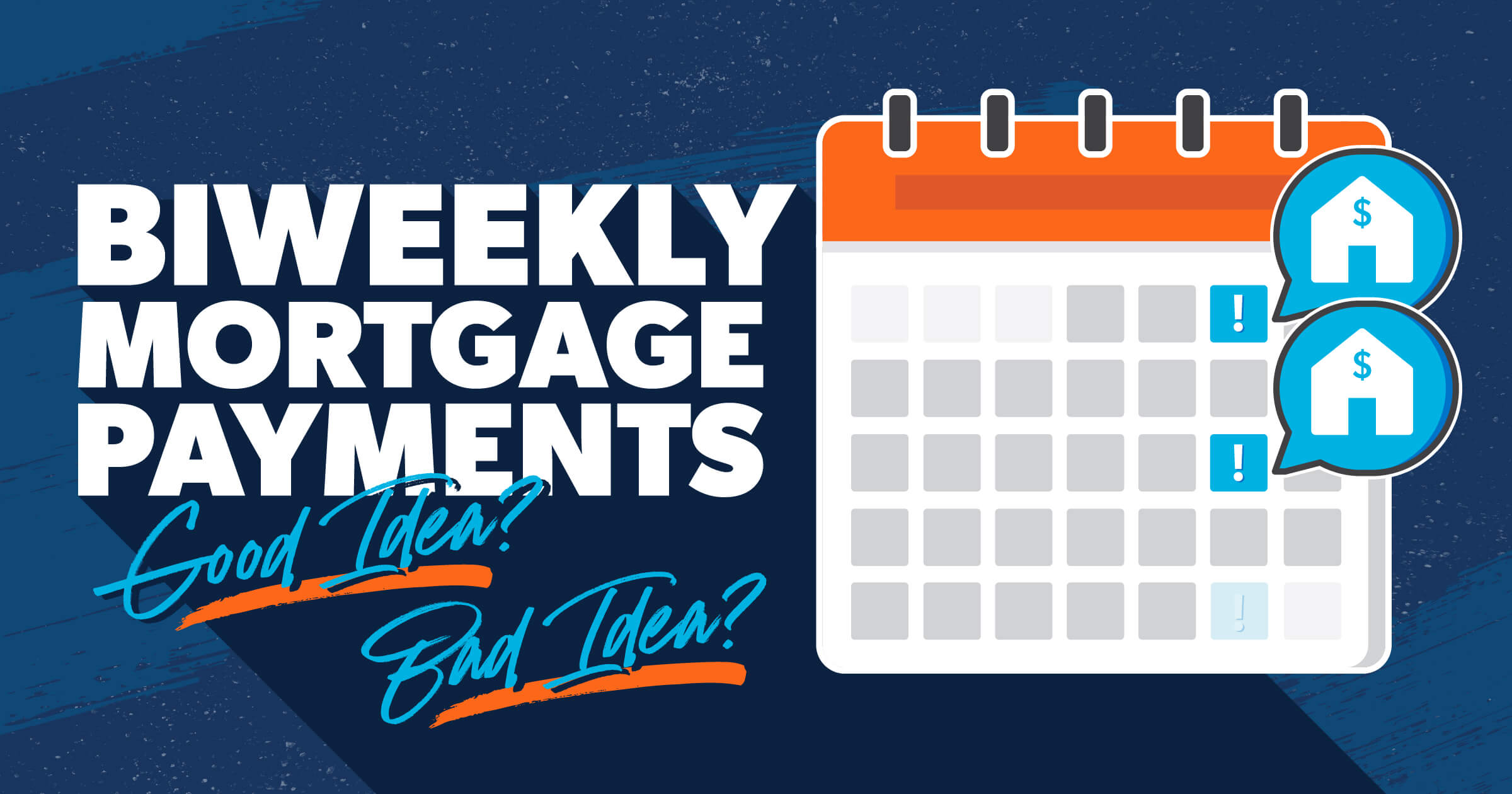What Are Biweekly Mortgage Payments and Are They a Good Idea?
6 Min Read | Dec 3, 2024

There’s something simple you can do to cut years off your mortgage payoff date. It’s called making biweekly (instead of monthly) mortgage payments! It’s a smart way to add some speed as you dash out of debt. But before you set up biweekly payments on your mortgage, there are several things you should know. Let’s see what they are.
What Are Biweekly Mortgage Payments?
Biweekly mortgage payments are a way to schedule your payments to happen every two weeks instead of once a month. Doing some quick math here, that means you’re signing on for 26 half-size payments a year, which is like 13 full-size payments.
Do you realize what this means? If you go the biweekly route, you’ll be sending an extra monthly payment every year without hardly feeling it! If you make a habit of that on a 30-year loan, you can cut four freakin’ years off a mortgage, depending on the interest rate!
Should You Make Biweekly Mortgage Payments?
Well that depends on how fast you want to pay off your mortgage! We assume you’re down with being completely debt-free as fast as possible. In that case, you’re on the lookout for every extra advantage you can find to make that happen.
Find a Mortgage Lender You Can Trust!
Biweekly payments work really well for some people—especially people who get paid on that rhythm. After all, how convenient would it be to have the same number of annual payments as paychecks?
Those who like them appreciate the way you can almost sneak in that extra annual payment without much pain. Think about it this way. Which is easier—scheduling 26 payments of X amount paid biweekly throughout the year? Or paying double that amount the first 11 months of the year, and four times that amount in December? Using the example of $1,600 a month—which is what the U.S. Census Bureau reports as the median mortgage payment—let’s chart the differences.1
|
Biweekly |
Monthly |
Monthly + an extra payment at year’s end |
|
|
Total number of annual payments |
26 |
12 |
13 |
|
Total amount paid on mortgage all year |
$20,800 |
$19,200 |
$20,800 |
|
Payment amount |
$800 |
$1,600 |
$1,600 |
|
How it feels |
Easy |
Normal |
Hard (you have to cough up a double payment in a single month) |
The biweekly system makes a lot of sense! It gives you the same overall speed boost you’d get from doubling up your end-of-the-year payment, without the pain of actually forking over double the cash at one time. You’re basically spreading that extra payment across the year and getting into the habit of sending above the minimum payment every two weeks.
Things to Watch Out for Before Starting Biweekly Payments
Who doesn’t love the idea of becoming completely debt-free six, seven or eight years sooner than scheduled? The faster you pay your house off, the more income you’ll have available to put toward long-term wealth building!
But there are also a few things to keep in mind before you set this up with your lender.
Don’t Let Biweekly Payments Slow Down Your Debt-Free Progress
Biweekly payments are no substitute for gazelle intensity. As soon as you hit Baby Step 5, it’s time for you to start sending as much as you can toward getting rid of that mortgage forever! If biweekly payments help you make that happen faster, so be it! Just don’t confuse “set-it-and-forget-it” with focused intensity. Forcing yourself to send one extra monthly payment a year is one step you can take in the right direction—but it’s not an excuse to keep the mortgage around any longer than you have to.
Make Sure Your Mortgage Company Accepts Biweekly Payments Without Fees
You need to confirm that your lender actually accepts biweekly payments—some don’t. And even if they do, they may charge fees for the option. Never go for that! It defeats the whole purpose of biweekly payments, which is to save yourself money in the long run.
If your lender can’t (or won’t) allow you to set up normal biweekly payments without fees, just open a separate bank account dedicated to making your mortgage payment. You can deposit your half-payment amount there every two weeks and use that money to make your full monthly mortgage payment (could be automatic or by check). Now remember: You’ll make your mortgage payment every other time you make a deposit. So you’ll end up with your planned 13 payments by the end of the year, while still following your mortgage company’s rules about the timing of the payments. Win-win!
How to Set Up a Biweekly Mortgage Payment
If biweekly payments sound like a good idea for your situation, and you’re absolutely sure they’ll help inspire you to speed up paying off your house, let’s walk through the easiest way to set this up.
- Grab your monthly mortgage statement and take a look at the principal and interest portion of the payment. To find your new biweekly payment, we’re going to divide the monthly number by two. For example, if it’s $1,600 like the example above, you’ll be sending in biweekly payments of $800.
- Don’t forget to include the tax and insurance portion of your payment each month. The $800 example only covers principal and interest.
- Remember what we said about confirming that your mortgage company actually receives biweekly payments. First make sure that they do, and then double-check that there are no fees involved. Yes, it’s simpler for you if they receive biweekly payments. But even if they don’t, you can still use a separate bank account where you send biweekly payments.
- Remember, the key here is using any method available to get out of debt in a hurry. If the biweekly system lights a fire under you, embrace it! On the other hand, keep your eyes open for every extra dollar you can send to destroy your debt completely.
Want More Expert Real Estate Advice?
Sign up for our newsletter! It’s packed with practical tips to help you tackle the housing market and buy or sell your home with confidence—delivered straight to your inbox twice a month!
Get a Home Mortgage That Fits Your Budget
One of the biggest mistakes people make when choosing a mortgage is to focus on finding the lowest monthly payment. But the real key to building wealth long term is to focus on the total cost. Here’s a clue: We suggest a 15-year fixed-rate conventional loan. And here’s another handy guide—you’ll know you can afford a mortgage if the monthly payments are no more than 25% of your monthly take-home pay.
If you’re looking to pay off your mortgage faster, consider refinancing. The right deal could save you a ton of interest and help you pay it off way sooner.
Did you find this article helpful? Share it!

We Hear You!
We’re considering adding the ability to save articles to your Ramsey account.




